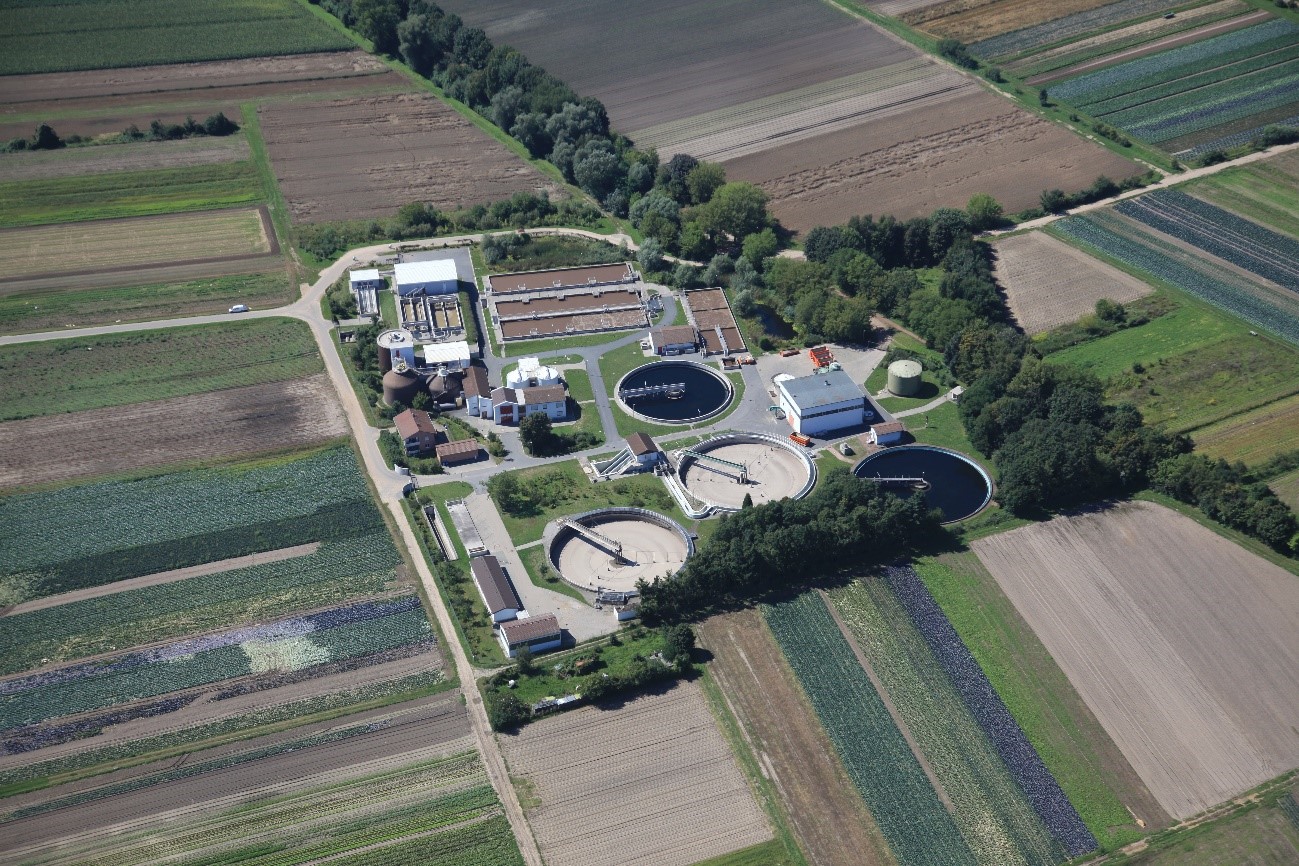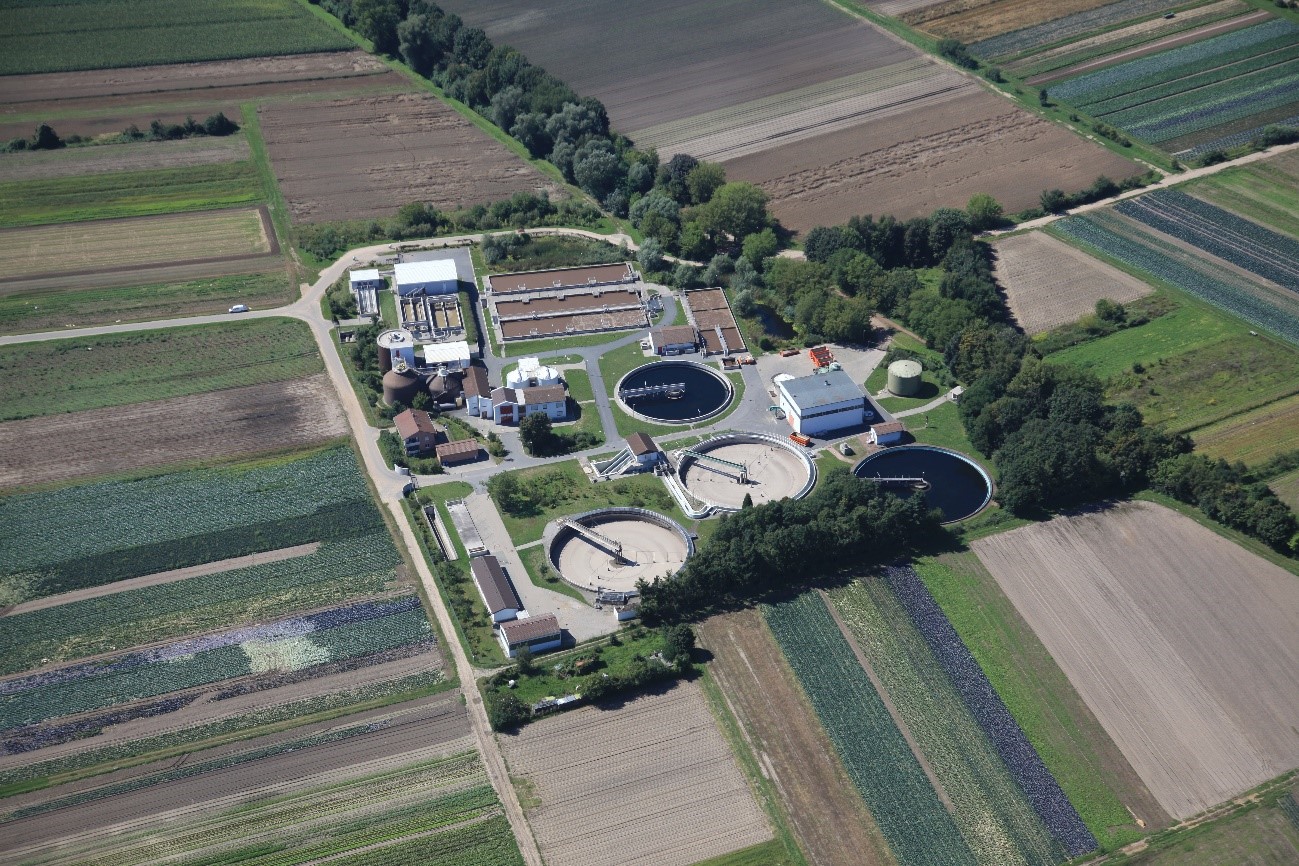The future expansion of existing wastewater treatment plants to include a 4th treatment stage may result in potential for water reuse in agriculture in the Hessian Ried. This would take into account sustainable and resource-conserving groundwater management.
The future expansion of existing large-scale wastewater treatment plants to include a more advanced treatment stage can be used in the Hessian Ried to introduce water reuse in agriculture. The high purification level of the existing wastewater treatment plants will be further improved by a fourth purification stage for the elimination of trace substances. In combination with disinfection for post-treatment, the focus of the feasibility study is on water reuse without the inclusion of nutrients. This engineering approach allows for demand-based irrigation and improvement of surface water quality of drainage ditches infiltrating into groundwater. This would meet the requirement of sustainable and resource-conserving groundwater management in the Hessian Ried.
This regional concept was developed and discussed in interviews and in a workshop with representatives of agriculture, irrigation associations and authorities. The goal of the operator model additionally developed in the feasibility study is for wastewater disposers to join agricultural irrigation associations. In this way, they become the central place for discussion and decision-making for the use of technical innovations and enable an understanding on quality management. In the Hessian Ried, established forms of direct and regional marketing as well as joint marketing can be used. Wastewater disposers, irrigation associations, farmers and the state level are also called upon to consider individual advantages and disadvantages with the overall social task in health, environmental and nature protection in their negotiation processes. Against this background, it is less a question of economic efficiency than of a fair distribution of tasks and burdens.





